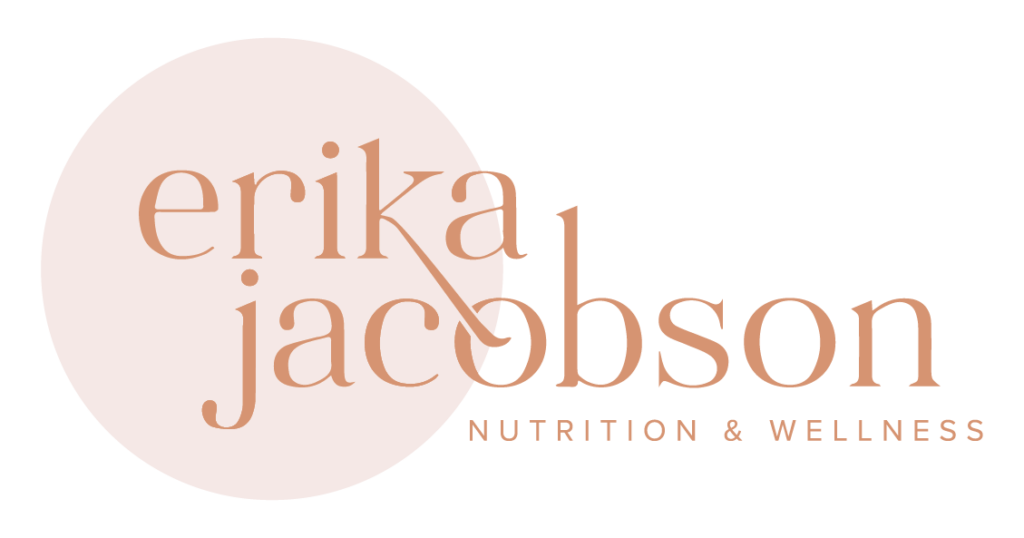Are you dealing with chronic gut issues like IBS, bloating, constipation, and diarrhea? If so, there’s a condition that you need to know about! It’s called dysbiosis – an imbalance of bacteria, viruses, parasites or fungi in your gut– and as a gut health dietitian, it’s an issue I see often in my clinical practice.
A few years back, when I started digging deeper into the root cause of my eczema, I discovered I had dysbiosis, too.
Knowing what was going on in my gut was a game-changer for me. I finally had a plan and solution to help me heal.
I want to help you discover if dysbiosis is also a problem for you. So, in this blog post we’ll dive into what dysbiosis is, how to recognize its signs and symptoms, and how a gut health dietitian can help you address it naturally. If you’re ready to take charge of your gut health, then keep reading!
Common symptoms/conditions associated with dysbiosis:
– bloating
– constipation
– diarrhea
– food intolerances and sensitivities
– frequent indigestion
– skin conditions: psoriasis, eczema, acne
– IBS
– IBD
– SIBO
– mood imbalances
– autoimmune disease
– metabolic syndrome
– weight loss resistance
If you have these symptoms and/or conditions, there’s likely some degree of dysbiosis in your gut.
However, it’s not only about knowing IF you have dysbiosis. Knowing your TYPE of dysbiosis is also essential, as different dysbiosis patterns require different approaches.
Types of Dysbiosis:
– Dysbiosis from lack of beneficial bacteria: Low levels of beneficial bacteria can increase the risk of gut infections, food sensitivities and leaky gut. This dysbiosis is most common in autoimmune, allergic, and chronic inflammatory conditions.
– Inflammatory dysbiosis: The presence of inflammatory microbes, as well as an increased intestinal permeability (leaky gut) can result in inflammatory dysbiosis.
– Dysbiosis from digestive dysfunction: This kind of dysbiosis is related to low stomach acid, insufficient bile acids, poor digestion, reduced absorption, and altered gut motility.
How do we know if and what type of dysbiosis is present?
My favorite way to assess for dysbiosis is using functional stool testing.
Functional stool testing looks at the balance of gut bacteria, gut pathogens as well as additional markers that will provide valuable information on your gut immune function, presence of inflammation and how well you are digesting the food you eat- if you are looking for a way to dig deeper and better understand your gut health, functional stool testing can help you do just that.
Ok, so you have dysbiosis… now what?
Treatment usually involves the “5R approach” to restoring gut health, which I’ll explain below:
– REMOVE: Antimicrobial protocol to address overgrowth of bad bacteria, if present. You’ll also want to remove any trigger foods that worsen your symptoms and implement a whole food, anti-inflammatory diet (don’t worry, we will identify these together if you’re unsure).
– REPLACE: Here, we want to optimize digestion by supporting digestive enzymes and juices, improving stomach acid levels and supporting motility as needed.
– RE-INOCULATE: Support the growth of beneficial bacteria using probiotics, prebiotics and polyphenols.
– REPAIR: Healing the gut lining using supplements like colostrum, L-glutamine, zinc carnosine, and soothing herbs like marshmallow root and DGL.
– RE-BALANCE: Optimize lifestyle factors that support your gut such as stress and adrenal support, sleep, and reducing toxic burden.
Let’s sum it up:
Dysbiosis can cause many problems with digestion and non-digestive issues (think skin rashes, brain fog, weight loss resistance), so it’s super important to identify and address it appropriately. However, it’s not as simple as going on an elimination diet or taking a fiber supplement.
I use my own version of the 5R protocol with my clients so we can look beyond food restrictions and heal for good.
Working with a functional gut health dietitian can help you eliminate dysbiosis and start feeling your best again. If you’re ready to dig deep and heal, schedule a FREE clarity call with me.
Lipski, Elizabeth. Digestive Wellness: Strengthen the Immune System and Prevent Disease through Healthy Digestion. McGraw-Hill, 2020.




